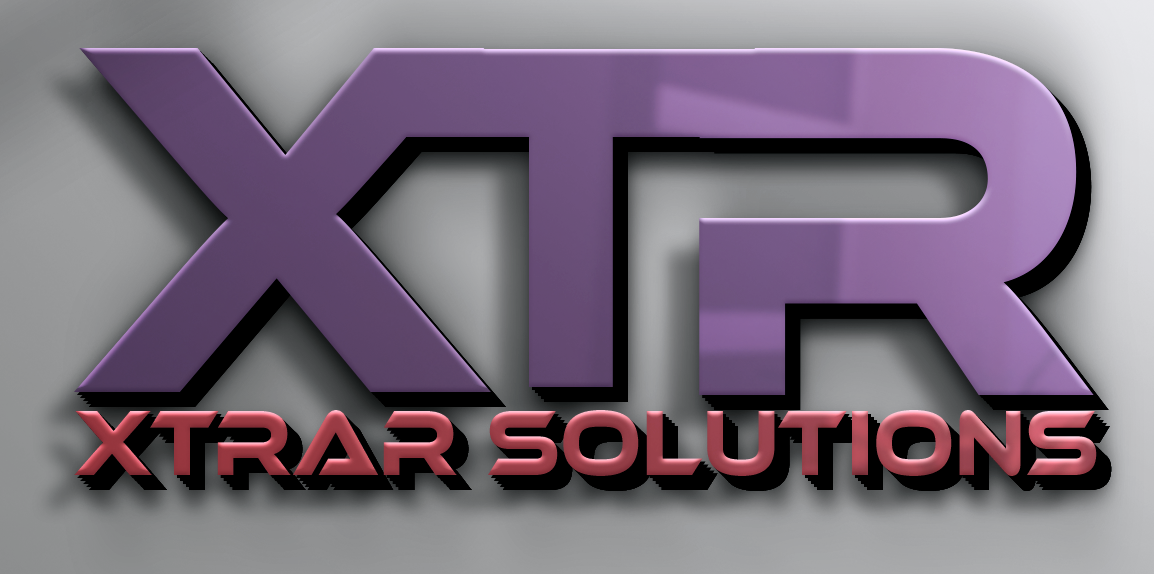What CPAs and Clients Should Know About Tax Zapper Software
CPAs who assist clients with sales tax obligations can build credibility by educating themselves about the increasingly well-known phenomenon of tax zapper software.
Tax zapper software – also referred to as “sales suppression software” – is a technology which can enable businesses to deliberately underreport their sales in order to underpay their true sales tax burden.
As we know, most states collect sales tax on standard business transactions. Typically, no sales tax is imposed on produce, but it is imposed on most other items. If you buy a cup of coffee or a magazine, sales tax will likely be collected, unless you happen to live in a state without sales tax.
Many business owners have already been caught, charged and sentenced for using zapper software to commit sales tax fraud. Cash businesses are at a higher risk for zapper software tax fraud, and so CPAs can counsel clients who run cash businesses (such as restaurants) accordingly. In any event, it’s a wise policy to discuss this issue with clients so you can prevent tax fraud in the future.
Tax Zapper Software Can Create Two Sets of Books
Zapper software is installed on a “point-of-sale” (POS) system, or directly onto a cash register. This software can then delete certain transactions after they’ve been made, and thereby create a second set of books on top of the original set. This second set of books can then be used as the “official” or “original” set of books because, without any special investigation, it can easily pass off as such.
Intuit's Path To Advisory
This comprehensive, free online guide will help firms lead with planning and advisory services. Using the collective knowledge, experience, tools, and best practices from Intuit Tax Council Members, this guide offers clear, actionable steps for firms looking to add advisory services, or those in the process of switching.
Download the White Paper
This second set of books can therefore be used to deliberately underreport sales and commit sales tax fraud. The software user simply pockets the unremitted sales tax which was leftover. The thing that can make this operation very tough to discover is the occurrence of cash-based transactions.
Suppose this software is installed in a business which sees a large percentage of cash transactions, such as a diner. In this case, using the software to “delete” the transaction from the books would be quite easy, and very hard to track down for authorities.
Tax Zapper Software is Banned in Many States
As of right now, many states have already outlawed the use or possession of tax zapper software even without evidence of use for fraudulent purposes. For instance, Washington, Michigan, West Virginia, Florida, Utah and Georgia have already put forth direct bans against the use or possession of zapper software.
Other states, such as Mississippi and New York State, have proposed similar bans. This is something CPAs need to know and should bring up with clients whenever appropriate. If a client has purchased this software, but hasn’t used it, and lives in one of these states, you should counsel them accordingly. Let them know that even possession can be criminal and that they should come clean immediately.
Authorities are Cracking Down on Tax Zapper Software
As mentioned, part of the reason why some business owners use zapper software is because it is so difficult to detect. The software produces an entirely new set of books, and so authorities often have to conduct extremely thorough investigations in order to identify foul play. But, CPAs and business owners should be aware that many state authorities have cracked down on illegal zapper software use, and the consequences have been harsh.
For instance, the owners of a sushi restaurant in Michigan were recently charged and convicted of sales tax fraud using zapper software. The penalties were quite severe, as reported in this Michigan news outlet. One tactic used by state authorities to crack down on zapper software is to use undercover agents to pose as customers.
The agents obtain receipts for an item, and then later use those receipts to demonstrate that their transaction had been (or had not been) deleted from the books. This tactic has been used in multiple zapper software investigations across the country.
Little by little, state governments and authorities are learning about this software and how to detect it. CPAs should take note and counsel their clients accordingly.
IRS and States Crack Down on POS Systems: Zapper Software
A good point of sale (“POS”) system is critical for any business engaged in sales to the public and having one in place goes a long way to ensuring that revenue and profits are being reported properly to federal, state and local tax authorities. Along with the proliferation of companies who create the software that drive POS systems, however, is a dubious technology known as revenue suppression software (“RSS”) that is also sold as an add-on to the basic POS system.
RSS programs, also known as “zappers”, are used to delete some or all of a restaurant’s cash transactions and then reconcile the books of the business. Unlike voiding sales or comping meals from time to time that would appear on a report as a zero dollar transaction, a restaurant owner, for example, can use the zapper software to delete entire transactions from the day’s receipts and exclude that information completely from financial reports. The result is that the restaurant owner reports less revenue and pays less sales and meals tax and less income tax than what is actually owed.
As a reminder, the willful failure to completely and accurately report all income is a felony under Massachusetts and federal law. Section 7201 of the Internal Revenue Code (“IRC”) states that “any person who willfully attempts … to evade or defeat any tax … [is] guilty of a felony and, upon conviction thereof, shall be fined not more than $100,000 ($500,000 in the case of a corporation), or imprisoned not more than 5 years, or both, together with the costs of prosecution.” Section 73 of Chapter 62C of Massachusetts General Laws is nearly identical to its federal counterpart and calls for the same punishment.
One example of the recent crackdown on the users and creators of this software to evade taxes is the recent prosecution of John Yin, a salesman for a Canadian company that sells POS software.
Yin worked as a salesman for Profitek, a British Columbia company with offices in China and a growing dealership network in North America, selling POS systems for hospitality and retail industries. Profitek designed, marketed, sold, and supported revenue suppression software as an “add-on” to its Profitek point-of-sale software.
Yin acknowledged in his plea agreement with the federal government that he successfully sold the POS software, and assisted in the widespread distribution of the zapper software, to dozens of customers in and around Seattle over the course of several years. Since the zapper software could only be ordered from their supplier in China, Yin would put his clients in touch with the Chinese company and facilitate their purchase of the software. Yin also serviced the zapper software once his clients purchased and installed it. Yin also admitted that his clients’ use of zapper software allowed them to consistently and significantly underpay their various federal, state and local taxes, Social Security and Medicare taxes, and federal income taxes. Yin stipulated that the grand total of unpaid taxes attributable to zapper software sold by Yin over a five and a half year period to those restaurants in and around the Seattle area was $3,445,589.
In April 2017, A federal judge sentenced Yin to 18 months in prison followed by 3 years of supervised release and ordered him to pay $3,445,589 in restitution. It is unclear whether Yin’s plea agreement calls for cooperation with the state and federal authorities in other similar investigations.
Many states have already outlawed RSS or zapper software including Washington, Michigan, Florida, Georgia, Utah and West Virginia, and others are considering proposals to enact similar laws. The existence of such software on any POS system is difficult, if not impossible, to justify and can be used as evidence of willfulness in any criminal prosecution or civil tax proceedings.
A warning to those who employ the use of zapper software: the data that is deleted still exists on the hard drive that stores the POS data as well as the backup drive. There is no legitimate reason to have zapper software as part of a POS system and its existence can only lead to trouble as evidenced by Mr. Yin.
Function
Most jurisdictions levy a sales tax or a value added tax on commercial transactions such as sales in stores or food served in a restaurant. These transactions are now most often recorded by a POS system rather than a mechanical cash register. The POS system records are generally not alterable by the operator and are used as the basis of tax assessments and audits by tax authorities.
Because POS systems are increasingly designed as general purpose computers (as of 2008, 85% worldwide were reported to run Microsoft Windows),[1] arbitrary software can be run on them. A "zapper" is a software program, often run untraceable from a USB flash drive, that accesses the POS system records and allows the owner of a business to alter the records so as to make it credibly appear that fewer transactions have occurred than has actually been the case. This reduces the tax burden on the business, which is generally proportional to the volume of the transactions.
Government responses
The use of zappers is illegal and may be subject to criminal penalties. However, according to a 2008 The New York Times report, governments worldwide have yet to find effective means of preventing their use.[1] A European Union committee on cash register fraud has been established, and legislation mandating tamper-proof POS systems has been proposed in Germany in 2008 (INSIKA) and introduced in Quebec, Canada, on September 1, 2010.
In Canada, legislation aimed at suppressing zappers is in effect since 1 January 2014. A first offence will lead to a $5,000 fine, and subsequent infractions to a $50,000 fine. Persons in possession of zappers could be fined up to $50,000, and developers or sellers up to $100,000.
In Australia, activities involving electronic sales suppression tools that relate to people or businesses that have Australian tax obligations are banned since 4 October 2018, and subject to criminal and administrative penalties.
In Russia, the electronic secure memory device (EKLZ) was made mandatory to be part of any cash register. Then, new online cash registers use a combination of the special secure fiscal storage and the immediate transmission of the data to the tax service. These measures make it impossible to remove the data from the memory of the cash register.
In 2021, the state of Massachusetts drafted provisions into their budget establishing penalties for the use of selling, purchasing, installing, or possessing zappers. Selling (or offering for sale) zappers will incur a fine of up to $25,000 for the first offense and up to $50,000 for subsequent offenses; purchasing, installing, or possessing a zapper will incur a first-time fine of up to $10,000, and up to $25,000 for subsequent offenses.







0 Comments